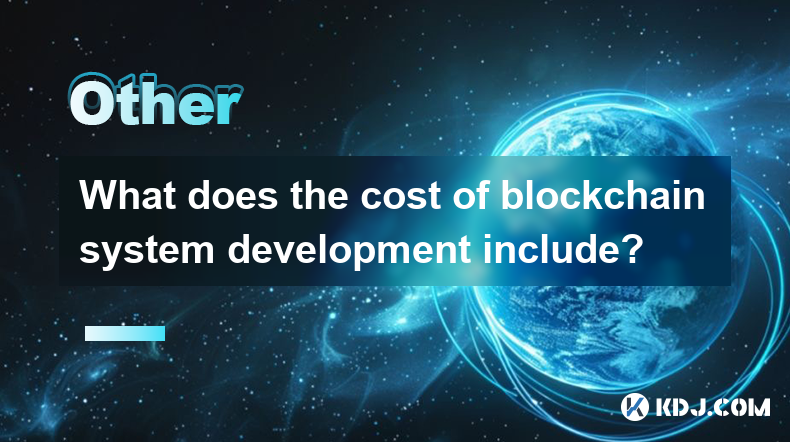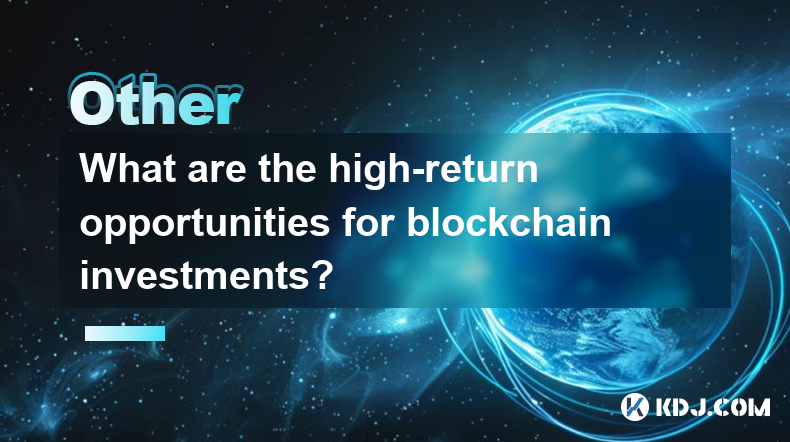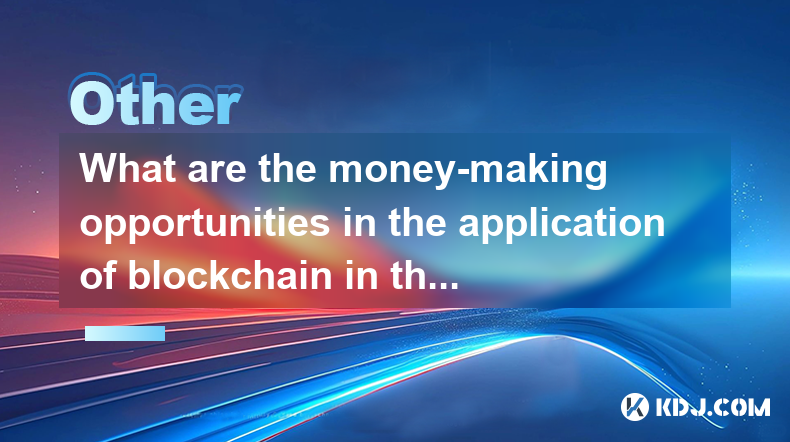-
 Bitcoin
Bitcoin $82,743.1684
-0.83% -
 Ethereum
Ethereum $1,786.3826
-1.32% -
 Tether USDt
Tether USDt $0.9994
-0.03% -
 XRP
XRP $2.0878
-1.92% -
 BNB
BNB $587.7876
-1.29% -
 Solana
Solana $118.6875
-1.73% -
 USDC
USDC $0.9998
-0.02% -
 Dogecoin
Dogecoin $0.1643
-2.60% -
 TRON
TRON $0.2377
0.02% -
 Cardano
Cardano $0.6373
-2.77% -
 UNUS SED LEO
UNUS SED LEO $9.1671
2.54% -
 Chainlink
Chainlink $12.5669
-2.12% -
 Toncoin
Toncoin $3.2464
-1.42% -
 Stellar
Stellar $0.2477
-3.26% -
 Avalanche
Avalanche $17.2033
-5.15% -
 Shiba Inu
Shiba Inu $0.0...01207
-1.96% -
 Sui
Sui $2.1527
-3.60% -
 Hedera
Hedera $0.1569
-3.21% -
 Litecoin
Litecoin $81.3616
-2.90% -
 Polkadot
Polkadot $3.9137
-2.05% -
 MANTRA
MANTRA $6.2374
-0.83% -
 Bitcoin Cash
Bitcoin Cash $294.4450
-2.52% -
 Dai
Dai $1.0000
-0.01% -
 Bitget Token
Bitget Token $4.4073
-2.22% -
 Ethena USDe
Ethena USDe $0.9990
-0.01% -
 Pi
Pi $0.6502
8.02% -
 Monero
Monero $214.2746
-1.19% -
 Hyperliquid
Hyperliquid $11.5054
-2.25% -
 Uniswap
Uniswap $5.8244
-1.12% -
 OKB
OKB $54.0326
5.53%
What does the cost of blockchain system development include?
The cost of blockchain development includes planning, team expertise, platform choice, smart contracts, security, testing, deployment, training, marketing, and ongoing maintenance.
Apr 02, 2025 at 12:28 pm

The cost of blockchain system development encompasses a wide range of factors that influence the overall expense of creating a robust and efficient blockchain network. Understanding these elements is crucial for anyone looking to venture into blockchain development, whether for a startup or an established enterprise. From the initial planning and design stages to the ongoing maintenance and upgrades, each aspect plays a vital role in determining the total cost. This article delves into the various components that contribute to the cost of blockchain system development, providing a comprehensive overview of what to expect and how to budget effectively.
Initial Planning and Design
The first phase of blockchain system development involves extensive planning and design. This stage is critical as it sets the foundation for the entire project. The cost here includes the time and expertise of blockchain architects and consultants who help define the project's scope, objectives, and technical requirements. Factors such as the type of blockchain (public, private, or consortium), the consensus mechanism, and the desired features all influence the complexity and cost of this phase.
Development Team and Expertise
Assembling a skilled development team is a significant part of the cost. Blockchain development requires expertise in various programming languages like Solidity, Python, or Java, depending on the platform. The cost can vary based on the location of the developers, their experience level, and the size of the team. Hiring full-time developers, freelancers, or outsourcing to a blockchain development company are options, each with different cost implications. Additionally, the need for blockchain experts, smart contract developers, and cybersecurity specialists adds to the expense.
Platform and Infrastructure
Choosing the right blockchain platform is another cost factor. Platforms like Ethereum, Hyperledger, or Corda come with different licensing fees, if any, and infrastructure requirements. The cost of setting up and maintaining the necessary hardware, such as servers and nodes, can be substantial. Cloud services like AWS or Azure can be used to manage infrastructure, but they come with ongoing costs. Additionally, the decision to build on an existing platform or develop a custom blockchain from scratch significantly impacts the overall expense.
Smart Contracts and DApps Development
Smart contracts and decentralized applications (DApps) are central to many blockchain systems. Developing these requires specialized skills and can be time-consuming. The cost includes the development, testing, and deployment of smart contracts, which are essential for automating transactions and enforcing rules on the blockchain. The complexity of the smart contracts, the number of DApps, and the integration with existing systems all contribute to the cost. Moreover, the ongoing maintenance and updates of smart contracts and DApps add to the long-term expenses.
Security and Compliance
Security is paramount in blockchain development, and ensuring it can be costly. The cost includes implementing robust security measures, conducting regular audits, and possibly hiring external security firms to test the system. Compliance with regulatory standards and laws, such as GDPR or KYC/AML regulations, also adds to the expense. Ensuring that the blockchain system meets these requirements involves additional development work and possibly legal consultations, which can be significant cost factors.
Testing and Quality Assurance
Thorough testing and quality assurance are essential to ensure the reliability and performance of the blockchain system. The cost of this phase includes the time and resources needed for unit testing, integration testing, and user acceptance testing. Automated testing tools and manual testing by QA engineers are both necessary to identify and fix bugs and vulnerabilities. The complexity of the system and the need for extensive testing can significantly impact the overall cost of development.
Deployment and Integration
Deploying the blockchain system and integrating it with existing systems or third-party services is another cost factor. The deployment phase includes setting up the network, configuring nodes, and ensuring that the system is operational. Integration with existing databases, APIs, or other systems can be complex and time-consuming, adding to the cost. The need for specialized integration tools and expertise further contributes to the expense of this phase.
Training and Support
Training the team and users on how to use the blockchain system is crucial for its successful adoption. The cost includes developing training materials, conducting workshops, and providing ongoing support. The complexity of the system and the number of users who need training can significantly impact the cost. Additionally, providing technical support and troubleshooting services to users adds to the long-term expenses of maintaining the blockchain system.
Marketing and Adoption
Promoting the blockchain system and encouraging its adoption is another cost factor. Marketing efforts, such as creating awareness, educating potential users, and building a community around the system, require resources. The cost includes developing marketing materials, running campaigns, and possibly hiring marketing professionals. The success of the blockchain system often depends on its adoption, making marketing and promotion essential but costly components of the development process.
Ongoing Maintenance and Upgrades
The cost of blockchain system development does not end with the initial deployment. Ongoing maintenance and upgrades are necessary to keep the system running smoothly and to add new features or fix issues. The cost includes regular updates, bug fixes, and possibly major upgrades to the system. The need for continuous monitoring, security updates, and compliance with evolving regulations adds to the long-term expenses. Planning for these ongoing costs is essential for the sustainability of the blockchain system.
Common Questions Related to the Cost of Blockchain System Development
Q: What are the main factors that influence the cost of blockchain system development?
A: The main factors include the initial planning and design, the development team and their expertise, the choice of platform and infrastructure, the development of smart contracts and DApps, security and compliance measures, testing and quality assurance, deployment and integration, training and support, marketing and adoption efforts, and ongoing maintenance and upgrades.
Q: How does the choice of blockchain platform affect the cost?
A: The choice of blockchain platform significantly impacts the cost. Different platforms like Ethereum, Hyperledger, or Corda have varying licensing fees, infrastructure requirements, and development complexities. Building on an existing platform can be less costly than developing a custom blockchain from scratch, but it depends on the specific needs and goals of the project.
Q: What role does the development team play in the cost of blockchain system development?
A: The development team is a major cost factor. The expertise, experience, and location of the developers, as well as the size of the team, influence the cost. Hiring full-time developers, freelancers, or outsourcing to a blockchain development company are options, each with different cost implications. The need for blockchain experts, smart contract developers, and cybersecurity specialists adds to the expense.
Q: How important is security in blockchain system development, and how does it affect the cost?
A: Security is paramount in blockchain development. The cost includes implementing robust security measures, conducting regular audits, and possibly hiring external security firms to test the system. Compliance with regulatory standards and laws also adds to the expense. Ensuring the security and compliance of the blockchain system involves additional development work and possibly legal consultations, which can be significant cost factors.
Q: What are the ongoing costs associated with maintaining a blockchain system?
A: Ongoing costs include regular updates, bug fixes, and possibly major upgrades to the system. Continuous monitoring, security updates, and compliance with evolving regulations also add to the long-term expenses. Planning for these ongoing costs is essential for the sustainability of the blockchain system.
Q: How can marketing and adoption efforts impact the cost of blockchain system development?
A: Marketing and adoption efforts are crucial for the success of a blockchain system. The cost includes developing marketing materials, running campaigns, and possibly hiring marketing professionals. Creating awareness, educating potential users, and building a community around the system require resources, making marketing and promotion essential but costly components of the development process.
Q: What is the role of testing and quality assurance in blockchain system development, and how does it affect the cost?
A: Testing and quality assurance are essential to ensure the reliability and performance of the blockchain system. The cost includes the time and resources needed for unit testing, integration testing, and user acceptance testing. Automated testing tools and manual testing by QA engineers are both necessary to identify and fix bugs and vulnerabilities. The complexity of the system and the need for extensive testing can significantly impact the overall cost of development.
Q: How does the deployment and integration phase contribute to the cost of blockchain system development?
A: The deployment and integration phase involves setting up the network, configuring nodes, and ensuring that the system is operational. Integration with existing databases, APIs, or other systems can be complex and time-consuming, adding to the cost. The need for specialized integration tools and expertise further contributes to the expense of this phase.
Q: What are the costs associated with training and support for a blockchain system?
A: Training and support are crucial for the successful adoption of a blockchain system. The cost includes developing training materials, conducting workshops, and providing ongoing support. The complexity of the system and the number of users who need training can significantly impact the cost. Additionally, providing technical support and troubleshooting services to users adds to the long-term expenses of maintaining the blockchain system.
Q: How does the initial planning and design phase affect the cost of blockchain system development?
A: The initial planning and design phase is critical as it sets the foundation for the entire project. The cost includes the time and expertise of blockchain architects and consultants who help define the project's scope, objectives, and technical requirements. Factors such as the type of blockchain, the consensus mechanism, and the desired features all influence the complexity and cost of this phase.
Disclaimer:info@kdj.com
The information provided is not trading advice. kdj.com does not assume any responsibility for any investments made based on the information provided in this article. Cryptocurrencies are highly volatile and it is highly recommended that you invest with caution after thorough research!
If you believe that the content used on this website infringes your copyright, please contact us immediately (info@kdj.com) and we will delete it promptly.
- Bitcoin (BTC) Mining Industry Reaches New Heights as Network Hashrate Hits an All-Time High
- 2025-04-06 16:40:13
- X2Y2 NFT Marketplace to Shut Down Operations on April 30, 2025
- 2025-04-06 16:40:13
- Illinois Senate Moves a Bill Forward That Aims to Regulate All Cryptocurrency Businesses Within the State
- 2025-04-06 16:35:12
- Despite Dogecoin (DOGE) Price Surge Predictions, RUVI Quietly Takes the Stage
- 2025-04-06 16:35:12
- ChatGPT Forecasts Modest Recovery of Shiba Inu (SHIB) by April 30
- 2025-04-06 16:30:13
- Bitcoin Has Been in the News Again, Not for Crashing or for Pumping to the Moon
- 2025-04-06 16:30:13
Related knowledge

Is the ranking of Chinese blockchain apps real and reliable?
Apr 04,2025 at 09:01pm
The ranking of Chinese blockchain apps has become a topic of interest for many in the cryptocurrency community, as it provides insights into the popularity and adoption of blockchain technology within China. However, the reliability and authenticity of these rankings are often questioned. This article aims to delve into the factors that influence these ...

What are the future development trends of blockchain game development?
Apr 03,2025 at 05:00am
Blockchain technology has revolutionized various industries, and gaming is no exception. As we look to the future, several trends are set to shape the development of blockchain games. These trends not only promise to enhance the gaming experience but also to integrate blockchain technology more seamlessly into the gaming ecosystem. Let's explore these t...

What are the high-return opportunities for blockchain investments?
Apr 05,2025 at 02:35pm
Blockchain technology has revolutionized the financial world, offering numerous high-return investment opportunities. These opportunities span various sectors within the cryptocurrency ecosystem, including cryptocurrencies, decentralized finance (DeFi), non-fungible tokens (NFTs), and blockchain startups. Each of these areas presents unique risks and re...

What are the maintenance costs of blockchain system development?
Apr 03,2025 at 06:07pm
The maintenance costs of blockchain system development are multifaceted and depend on various factors. These costs can include technical maintenance, security updates, infrastructure expenses, and personnel costs. Understanding these elements is crucial for anyone planning to develop or maintain a blockchain system. Technical MaintenanceTechnical mainte...

What are the money-making models of blockchain games?
Apr 04,2025 at 02:00pm
Blockchain games have emerged as a revolutionary way for players to earn real money while enjoying their favorite pastime. These games leverage the power of blockchain technology to create unique money-making models that benefit both the players and the developers. In this article, we will explore the various money-making models of blockchain games and ...

What are the money-making opportunities in the application of blockchain in the field of Internet of Things?
Apr 05,2025 at 10:35pm
The integration of blockchain technology with the Internet of Things (IoT) presents numerous money-making opportunities. Blockchain, with its decentralized and secure nature, can revolutionize how IoT devices interact, manage data, and conduct transactions. This article will explore various avenues where entrepreneurs, developers, and investors can capi...

Is the ranking of Chinese blockchain apps real and reliable?
Apr 04,2025 at 09:01pm
The ranking of Chinese blockchain apps has become a topic of interest for many in the cryptocurrency community, as it provides insights into the popularity and adoption of blockchain technology within China. However, the reliability and authenticity of these rankings are often questioned. This article aims to delve into the factors that influence these ...

What are the future development trends of blockchain game development?
Apr 03,2025 at 05:00am
Blockchain technology has revolutionized various industries, and gaming is no exception. As we look to the future, several trends are set to shape the development of blockchain games. These trends not only promise to enhance the gaming experience but also to integrate blockchain technology more seamlessly into the gaming ecosystem. Let's explore these t...

What are the high-return opportunities for blockchain investments?
Apr 05,2025 at 02:35pm
Blockchain technology has revolutionized the financial world, offering numerous high-return investment opportunities. These opportunities span various sectors within the cryptocurrency ecosystem, including cryptocurrencies, decentralized finance (DeFi), non-fungible tokens (NFTs), and blockchain startups. Each of these areas presents unique risks and re...

What are the maintenance costs of blockchain system development?
Apr 03,2025 at 06:07pm
The maintenance costs of blockchain system development are multifaceted and depend on various factors. These costs can include technical maintenance, security updates, infrastructure expenses, and personnel costs. Understanding these elements is crucial for anyone planning to develop or maintain a blockchain system. Technical MaintenanceTechnical mainte...

What are the money-making models of blockchain games?
Apr 04,2025 at 02:00pm
Blockchain games have emerged as a revolutionary way for players to earn real money while enjoying their favorite pastime. These games leverage the power of blockchain technology to create unique money-making models that benefit both the players and the developers. In this article, we will explore the various money-making models of blockchain games and ...

What are the money-making opportunities in the application of blockchain in the field of Internet of Things?
Apr 05,2025 at 10:35pm
The integration of blockchain technology with the Internet of Things (IoT) presents numerous money-making opportunities. Blockchain, with its decentralized and secure nature, can revolutionize how IoT devices interact, manage data, and conduct transactions. This article will explore various avenues where entrepreneurs, developers, and investors can capi...
See all articles




















































































